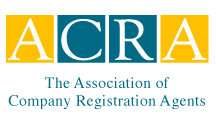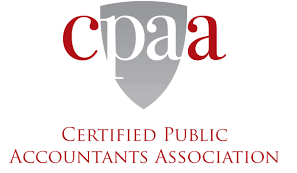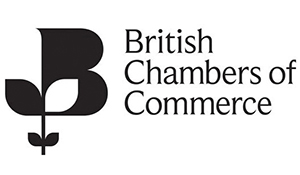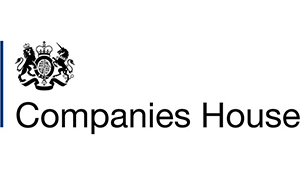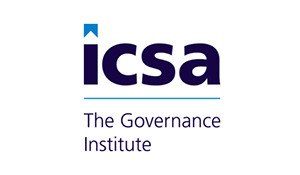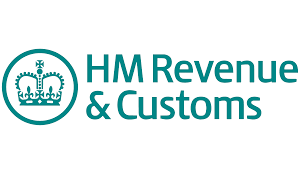But she was shocked to learn that all available tickets for the full month had already been sold. She could still stand in line the day of the trip, but because it would only take a few hours, it didn't seem like it would be worthwhile.
Schafer decided to take the plunge and get her tickets through a non-official third-party source. She paid twice to three times as much as the price of the official Vatican website.
When she had a similar issue with the Colosseum, she determined it would be best to completely avoid the iconic site. The Miami-based student, 21, added, "I just honestly wasn't willing to spend more money." "It quickly starts to add up."
Schafer's experience represents an increasing issue for tourists in Europe, where efforts to better manage mass tourism and large crowds have resulted in the requirement for tickets for the majority of activities in popular tourist destinations. The final effect is a tourism ecology that makes spontaneity challenging for tourists who nevertheless want to get the most of places without meticulously scheduling every minute of their trip.
Are you visiting Europe? You're not just dealing with crowds in the summer.
Popular attractions frequently sell out very immediately after going on sale, creating an opportunity for third parties to purchase large quantities of tickets in advance and resell them to tourists at a higher price.
Alessandro Onorato, a member of the Rome tourism council, referred to the practice as "a scourge." Through "ultra-sophisticated programs that manage to buy... monument tickets within minutes of when they go on sale and then put them back on sale at prices three or several times higher, creating a distortion of the market and harming tourists and companies that operate legally," he claimed in an email interview. These businesses, which are frequently based outside of the area where they're selling, can do this.
Here are some helpful tips for buying tickets.
How to avoid paying too much to visit the places on your bucket list
The best course of action is to purchase tickets as soon as you can, whenever possible, even if it means making reservations months in advance, for must-see attractions.
Ryan Villa, owner and operations manager of All Travel Guru, a company that specializes in European travel, stated, "We're always trying to book at least four months in advance, six months, maybe even seven months at best." Usually, if a client contacts us within 30 days, we warn them that there might be trouble getting tickets.
Experts advise making reservations as far in advance as you can, especially for popular attractions like the Vatican Museums or the Louvre in Paris. This frequently entails finding out in advance when tickets for each attraction go on sale.
For instance, tickets for the Colosseum go on sale 30 days in advance on the official website. This means that visitors who wish to go without spending extra money on a tour led by a third party or a ticket with a price gauge should set an alarm for precisely one month prior to their intended visit day and time.
Visiting Europe in 2019? There might be a new admission cost.
How to recognize a fraudulent third-party provider
Unauthorized third parties will offer travelers upcharged tickets on official-looking websites even if the attraction's tickets aren't completely sold out.
Travelers should be very careful about where they get their tickets while making reservations, advises Andrea Giordani, a spokesperson of Florence's tourism promotion agency. Travelers should use particular caution when assessing whether a website is the correct one because third-party websites frequently use deceptive wording in an effort to appear more official than they actually are.
Although it's not an exact science, identifying fake websites by their top-level domain names, such as ".com" against ".fr" in France or ".it" in Italy, can be a decent first step. Checking the city's official government or tourism board website might be help, as those sites frequently provide links to well-liked attractions.
The same is true when purchasing "city passes" or "city cards," which guarantee tourists the top attractions in the city for a discounted price. Many major cities offer official passes that tourists can purchase, which can be a convenient method to combine charges for transportation, museums, and other attractions. However, passes offered by outside organizations may be more expensive than purchasing individual attraction tickets.
There are many unauthorized passes in circulation. A fast Google search for "Barcelona Pass," for instance, returns dozens of results. The only official one is the Barcelona Card. The end result is that customers purchase overpriced, potentially exploitative passes from unlicensed merchants. Use the official city tourism websites as a resource instead.
Even if purchasing from a third-party vendor won't always be a bad experience, it's crucial to understand the difference between a legitimate business and an independent one.
How to choose a reputable third-party supplier
Even if you make every effort to reserve tickets for your top priorities as soon as you can, there is still a chance that they will be unavailable. This is especially true for vacations that were scheduled with more limited time.
Villa advises choosing a reliable tour operator in these situations because even the most reputable ones would purchase groups of tickets to support their tours. Villa added, "You'll have to pay a little bit more for the guide, but you'll get the guide and entry." The discount may be worthwhile "if it's an attraction you really wanna see."
Scams are becoming increasingly sophisticated, according to Villa. This implies that investigation is essential while locating a trustworthy trip operator. In these circumstances, reviews on Google, Trustpilot, and Tripadvisor can all be really useful information sources. Villa advised against utilizing a specific guide if it had no reviews or other written information about it.
Villa suggested Context Travel, Project Expedition, or Tours by Locals as more dependable sources of information despite the fact that websites like Viator or GetYourGuide provide aggregated search results (they are not tour operators), which can be hit or miss: These websites thoroughly check all of their tutorials and other content, so you can trust them.
The best way to handle timed tickets
Most really well-liked attractions now exclusively provide timed tickets, requiring visitors to schedule each day of their trip well in advance of their arrival. For instance, the cheapest tickets at Barcelona's Sagrada Familia cost 26 euros and are distributed every 15 minutes from 9 a.m. to 6:15 p.m. on most days.
It can be beneficial to consider what is practical in a certain trip plan when buying these tickets. Villa advised against being overly ambitious. "Be aware that you will be competing with traffic to get there when it comes to time slots."
Villa suggests to his customers that they "know the attraction" that they intend to see. Knowing its location in relation to the hotel or another area from which you will be traveling is necessary. Additionally, it entails doing advance study on the attraction: "Look up where the meeting points or the entry points are so you're prepared for your time slot." If you're in a hurry, choosing the incorrect entry to a museum or historical site could mean the difference between being on time and being late.
The time period for which the tickets are valid can also be important. Tickets for the early or late flights both have advantages, but it depends on the traveler. If they are early risers, Villa advised going in the morning when it would be less crowded. A early time slot also reduces the possibility of time delays from earlier in the day building up.
However, Villa advised tourists to be upfront with themselves about their travel preferences. An afternoon ticket would be your best bet if you desire a more leisurely start to your day. "With all of the travel to Europe, it's not even like there is a slow period anymore."
Think about days that are too crowded and other laws.
Make sure to check out free or discounted days at popular attractions. For specific groups, such students or those over a particular age, most museums, historical sites, and other attractions provide ticket discounts or even free tickets. However, it also implies that the site might be busier that day.
Additionally, some attractions have more detailed guidelines that are beneficial to remember. There are periods and days when visitors from Latin American nations can visit some Spanish tourist attractions for free, such as the Royal Palace or the San Lorenzo Monastery in El Escorial. Churches and other religious buildings will also provide visitors with alternate entrances if they are worshiping rather than visiting as tourists.
Don't neglect Europe's second cities, advises Rick Steves
Second cities, such as Lyon or Marseille in France, Glasgow in Scotland, or Porto in Portugal, can offer a travel experience that is just as good as or better than that of their more well-known counterparts. Additionally, if you have the freedom, going in off-peak times like November or March can help you avoid some of the crowds and reservation issues.
Once there, making a decision to go off the beaten path can enhance your enjoyment of the journey. The Azienda Veneziana della Mobilità, which oversees Venice's public transportation, was represented by Marta Moretti. "Sometimes people don't look for alternative paths," she remarked. She remarked that by doing this, "they lose the fantastic views and the more quiet areas" that might be found.


